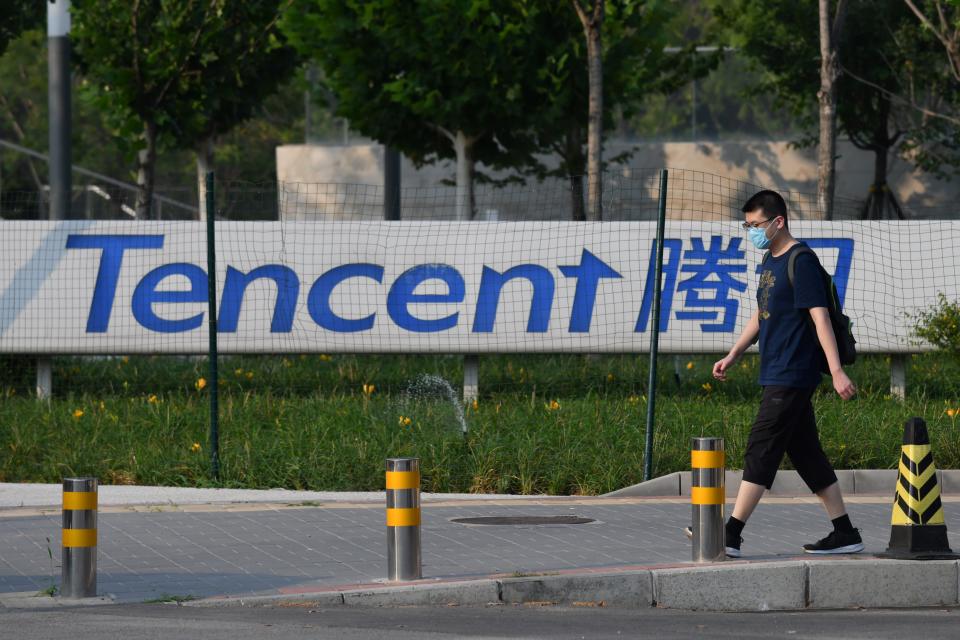Asia tech shares selloff seen as buy opportunity for some funds

By Moxy Ying, Ishika Mookerjee and Abhishek Vishnoi
(Bloomberg) -- Friday’s attack by President Donald Trump on WeChat may have pushed many investors to offload Asia’s technology shares. But for some, the selloff has presented a good buying opportunity.
Jian Shi Cortesi, a fund manager at GAM Investment Management in Zurich, bought some Chinese internet stocks on Friday and plans to further increase holdings if the stock prices pull back more.
“The U.S. ban on Chinese internet companies will have little impact on the revenue and earnings of most listed Chinese internet companies,” Cortesi said in an interview. Her Asia Focus Equity Fund has a third of its investments in internet stocks, and beat 93% of its peers in the past year. “It hurts sentiment, which could push the stock prices lower and create an opportunity to buy.”
Trump’s escalation of his confrontation with Beijing, banning U.S. residents from doing business with TikTok and WeChat apps, wiped about US$77 billion off the four largest Asia technology firms’ valuations on Friday and highlighted the political risks faced by regional companies, particularly those in China.
But Asian tech bulls aren’t flinching.
“President Trump’s noise provides a buying opportunity,” said Gary Dugan, chief executive officer of the Global CIO Office in Singapore. “Valuations are low on international comparisons and many are globally extremely competitive.”
WeChat operator Tencent Holdings Ltd. fell another 3.4% on Monday. Its peer Alibaba Group Holding Ltd. also declined 2.7%. Technology stocks in the U.S. had a selloff Friday as investors took note of the stepped up confrontation with China.
The value of the four largest stocks on the MSCI Asia Pacific Index, all of them tech firms, still lag behind their American peers. The group -- Alibaba, Tencent, Taiwan Semiconductor Manufacturing Co. and Samsung Electronics Co. -- trade at an average of 25 times estimated profit for the next year, versus the 34 times of the more familiar tech giants atop the S&P 500 Index.
The valuation gap had been narrowing since June, when the Asian companies traded at their cheapest since 2015. JPMorgan Asset Management’s Oliver Cox, who manages the JPMorgan Pacific Technology Fund, says the U.S.-China tiff doesn’t change the long-term story. He believes Asia has been repeating many of the U.S. trends in an earlier stage of evolution.
That implies “a much faster growth rate, more promising outlook and therefore greater upside potential for Asia Pacific tech stocks compared with the more mature, slower-growth U.S. names,” he said. The four Asia tech titans gained an average 22% this year, lagging behind a 40% average gain in their U.S. peers.
“The gap could be closer,” Pruksa Iamthongthong, a senior investment director for Asian equities at Aberdeen Standard Investments, said of the valuation difference. “On a three-year trajectory we will see a clear pathway on how they want to monetize businesses that they have invested in a long time ago.”
Still, U.S. capital markets remain by far the deepest, most diverse, and most attractive in the world, said Andy Wong, senior multi-asset investment manager at Pictet Asset Management, adding U.S. leadership in shareholder value, corporate governance, liquidity, and innovation warrants a higher multiple.
Yet a weakening U.S. dollar may also prompt foreign investors to look at foreign assets, and Asia tech presents good opportunities given structural growth drivers, according to Suresh Tantia, a senior investment strategist at Credit Suisse Group AG.
(Updates share prices in seventh paragraph.)
© 2020 Bloomberg L.P.

 Yahoo Finance
Yahoo Finance 